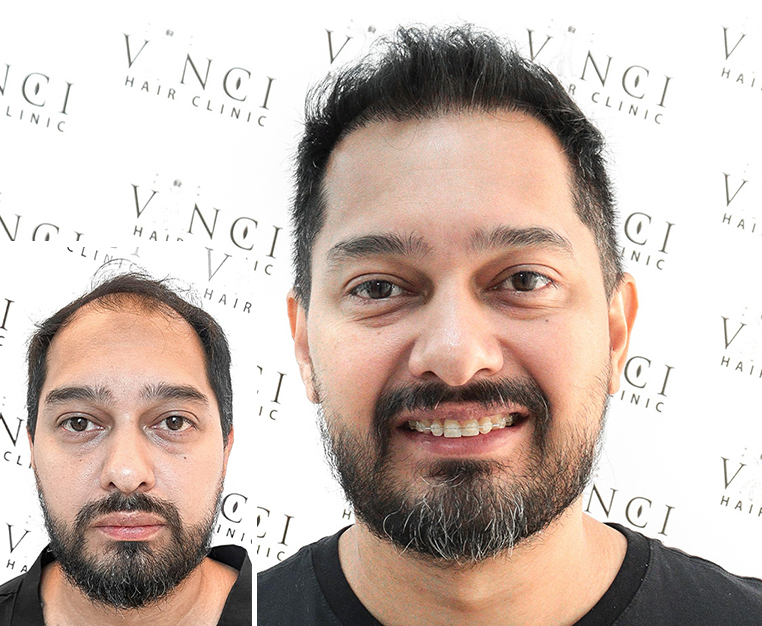Alopecia affects millions of people worldwide. It’s a condition that causes significant distress, particularly among younger adults, as it often leads to a loss of self-confidence and self-esteem. Many people turn to the internet, social media and celebrities for guidance on how to deal with this condition. Unfortunately, not all the information provided by these sources can be relied upon. Alopecia sufferers are often left disappointed as a result.
In this article, we will explore the treatments available for alopecia and debunk some of the myths. Keep scrolling to find out more!
Types of Alopecia and Their Causes
Alopecia is a catch-all term that describes any kind of hair loss. So, androgenetic alopecia, also known as male or female pattern baldness, is the most common form of alopecia and is caused by a combination of genetic and hormonal factors. Other causes include stress, illness and medication.
When the average person thinks of alopecia, however, it’s not the pattern baldness type that comes to mind. What most people mean when they talk about alopecia is the more dramatic alopecia areata. This is an autoimmune condition, which means that it occurs when the body’s own immune system attacks healthy cells.
Alopecia areata often results in patchy hair loss. Sometimes, the loss can be in small areas not much larger than a coin. There are different forms of alopecia areata, however. Alopecia areata totalis is when all the hair on your head falls out, while alopecia areata universalis is when the hair loss affects the whole body.
Celebrities and Alopecia
Celebrities are not immune to alopecia, and several have talked openly about their experiences. Perhaps the most high-profile case is that of actress Jada Pinkett Smith, mainly because her alopecia became headline news after the infamous incident at the Oscars involving her husband Will Smith and Chris Rock.
Actor Tyra Banks revealed that she suffers from alopecia areata and wears wigs to hide her hair loss. Singer Kesha also revealed that she has alopecia and has been wearing wigs for several years. These celebrities have helped to raise awareness of alopecia and reduce the stigma surrounding the condition.
Debunking Myths
One common myth surrounding alopecia is that hair loss can be reversed by using essential oils or herbal supplements. However, there is no scientific evidence to support these claims, and some herbal supplements can even be harmful to your health.
Then there is the idea that wearing a hat can cause hair loss. This is complete nonsense. Wearing your hair in a tight hairstyle, on the other hand, may damage your hair and scalp and lead to a bout of traction alopecia. This type of hair loss is usually temporary, however. Your hair will regrow once you revert to a looser hairstyle and stop doing the thing that’s causing the damage!
Your lifestyle and haircare habits can be contributory factors to some types of alopecia. As a rule, what’s good for your overall health is good for your hair, too, so eating a balanced diet, taking regular exercise and quitting smoking are all worth doing. If you notice your hair is showing signs of damage, don’t make matters worse: cut down on your use of heat styling tools and avoid harsh chemicals and treatments such as bleaching and dyeing.
Treatments for Alopecia
The most effective treatments for alopecia depend on the type and cause of the hair loss. For androgenetic alopecia, medications such as minoxidil and finasteride have been shown to be effective in clinical studies. Minoxidil stimulates hair growth, while finasteride blocks the production of dihydrotestosterone (DHT), a hormone that causes hair loss.
For alopecia areata, corticosteroids can be injected into the scalp to reduce inflammation and promote hair growth. There are also topical corticosteroids that can be applied to the scalp. Other treatments for alopecia areata include immunotherapy, which involves using chemicals to trigger an allergic reaction and stimulate hair growth, and light therapy, which involves exposing the scalp to UVB light.
The reality is, however, that for the more severe cases of alopecia areata, unlike pattern baldness and some other forms of hair loss, effective treatments are few and far between. The only consolation for sufferers is that societal attitudes are changing, in that people are now more aware of the condition and the distress it causes and, as a result, are more likely to be sympathetic.
Conclusion
Any form of hair loss can be a distressing experience, but none more so than alopecia areata which can strike suddenly and leave the individual with little or no hair. The most severe cases can lead to anxiety, depression and social isolation. Recent years have seen the growth of support groups that help individuals struggling with these psychological impacts of the condition.
If you have worries about hair loss or thinning, don’t delay getting your hair checked by an expert. At Vinci Hair Clinic, we offer a free, no-obligation consultation to all our new customers, either in person or over the phone using photographs. Get in touch and book your appointment today!


